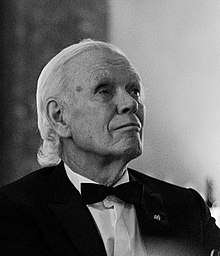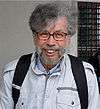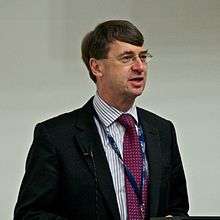European Astronomical Society
The European Astronomical Society (EAS) is a learned society, founded under the Swiss Civil Code in 1990, as an association to contribute and promote the advancement of astronomy in Europe, and to deal with astronomical matters at a European level. It is a society of individual professional astronomers, and all European astronomers can be members independently of their field of work or country of work or origin. The society offers a forum for discussion on all aspects of astronomical development in Europe, and is the organisation that represents the interests of astronomers in discussions of European-wide developments.
| Abbreviation | EAS |
|---|---|
| Formation | 1990 |
| Type | NGO, learned society |
| Purpose | To contribute to and promote the advancement of astronomy, in its broadest sense, in Europe by all suitable means. |
| Headquarters | Department of Astronomy, University of Geneva |
| Location | |
President | |
Vice-President | |
Vice-President | |
| Website | eas |
Maarten Baes (Belgium) serves as the EAS Newsletter editor.
Presidents
The President of the European Astronomical Society chairs the governing Council of the EAS and liaises with similar societies in countries around the world, and with the International Astronomical Union on behalf of the European astronomy community. The first person to hold the title of President of the European Astronomical Society was Lodewijk Woltjer, a post he held from the founding of the EAS until 1994. The post has a term of office of four years, the same as the other offices on the governing Council of the Society, and the office transfers from the incumbent at the conclusion of the final EAS Annual Meeting of their term. Thierry Courvoisier is the only holder to have been re-elected for a second term.
The current president is Roger Davies (Oxford, UK), who was elected for the period 2017–2021.
| # | Image | Name | Start year | End year | Notes | Reference |
|---|---|---|---|---|---|---|
| 01 |  | Lodewijk Woltjer | 1990 | 21 August 1993 | [1] | |
| 02 | Paul Murdin | 21 August 1993 | 5 July 1997 | [1][2][3] | ||
| 03 |  | Jean-Paul Zahn | 5 July 1997 | 2001 | [2][3] | |
| 04 | Harvey Raymond Butcher | 2001 | 2006 | |||
| 05 | Joachim Krautter | 2006 | 2010 | |||
| 06 | Thierry Courvoisier | 2010 | 2017 | |||
| 07 |  | Roger Davies | 2017 | 2021 | [4][5] |
Prizes
The European Astronomical Society awards several prizes on an annual or biannual basis.
| Year established | Prize | Purpose of award | Notes | |
|---|---|---|---|---|
| 2008 | Tycho Brahe Prize | Awarded in recognition of the development or exploitation of European instruments, or for major discoveries based largely on such instruments. | Named in honour of the influential sixteenth-century Danish astronomer Tycho Brahe. | |
| 2010 | Lodewijk Woltjer Lecture | To honour astronomers of outstanding scientific distinction. | Named in honour of the first President of the European Astronomical Society, Lodewijk Woltjer. | |
| 2013 | MERAC Prizes in | Theoretical Astrophysics | Awarded to best Early Career Researcher (on odd years) and for best Doctoral Thesis (on even years). | |
| Observational Astrophysics | ||||
| New Technologies (Instrumental/Computational) | ||||
| 2020 | Fritz Zwicky Prize for Astrophysics and Cosmology | Awarded to those who have obtained fundamental and outstanding results related to astrophysics and/or cosmology. | Awarded biennially on behalf of the Fritz Zwicky Foundation. | |
References
- EAS Newsletter (PDF) (Report). September 1993. Retrieved 10 March 2020.
- Bochkarev, N. G. (December 1999). "Preface". Astronomical & Astrophysical Transactions. 18 (3): 411–411. doi:10.1080/10556799908202996. ISSN 1055-6796. Retrieved 10 March 2020.
- EAS Newsletter (PDF) (Report). October 1997. Retrieved 10 March 2020.
- "EAS e-News". 8 July 2016. Retrieved 6 March 2020.
- "Professor Roger Davies Elected as President of the European Astronomical Society". www.chch.ox.ac.uk. Retrieved 10 March 2020.